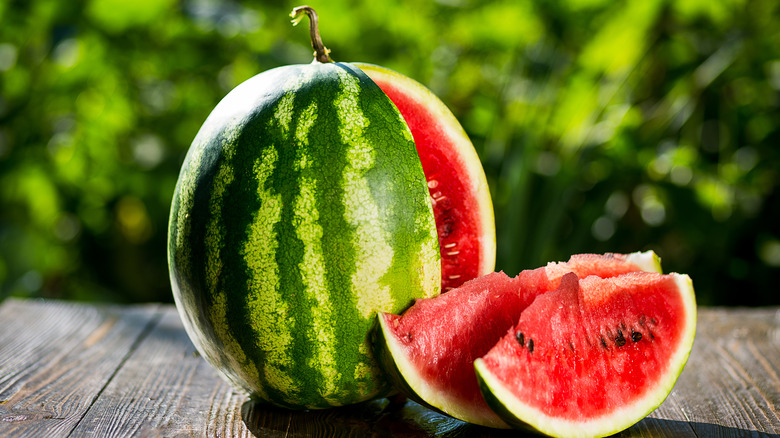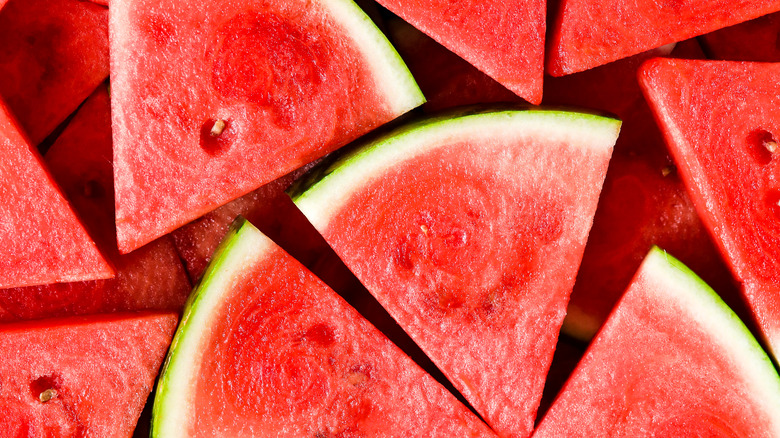The Difference Between White And Black Watermelon Seeds
Watermelon is synonymous with summer. Just the thought of the sweet and juicy fruit sparks images of sweltering hot days and racing to finish a freshly cut slice before its juices drip down your arm. With thousands of varieties, watermelons can range in size, color, flavor, and even type of seed. While there is a difference between white and black watermelon seeds, don't worry if you swallow either type — a watermelon won't grow in your belly!
While seedless varieties make up 90% of production (via Epicurious), the first watermelons were actually loaded with seeds. Dating back 5000 years ago to the deserts of southern Africa, the University of Missouri explains that the earliest watermelons were white, seeded, and a great source of hydration. Prized for their spiritual and medicinal properties along with their functionality, National Geographic states that trade eventually meant watermelons were diffused throughout Egypt, India, and China, before reaching Europe and eventually, North America.
Unripe vs. Ripe Seeds
Considering that Americans eat about 14 pounds per capita every year (via Statista), chances are that you have cut into a watermelon at some point and noticed either black seeds, white seeds, or a mix of both. But what do these different colors mean?
According to the National Watermelon Promotion Board, the thin, white flecks found in watermelon are actually empty seed coats that indicate a seed didn't fully mature. These white seeds are tender and almost translucent and can always be found in both seeded and seedless varieties. However, although common in seeded watermelon, white seeds appear in seedless varieties — just at a lesser volume. As a result of cross-breeding traits, these undeveloped seedlings aren't capable of reproducing like the matured and fertile black seeds, reports Allrecipes.
Totally safe to eat, the extra crunch from watermelon seeds isn't always welcomed. Although you could spit them out, you could also turn them into a tasty snack! Food52 recommends roasting seeds to take advantage of their protein, amino acids, B vitamins, and magnesium. They can even be used to make watermelon seed butter — yes, Food & Wine proves that's actually a thing!

